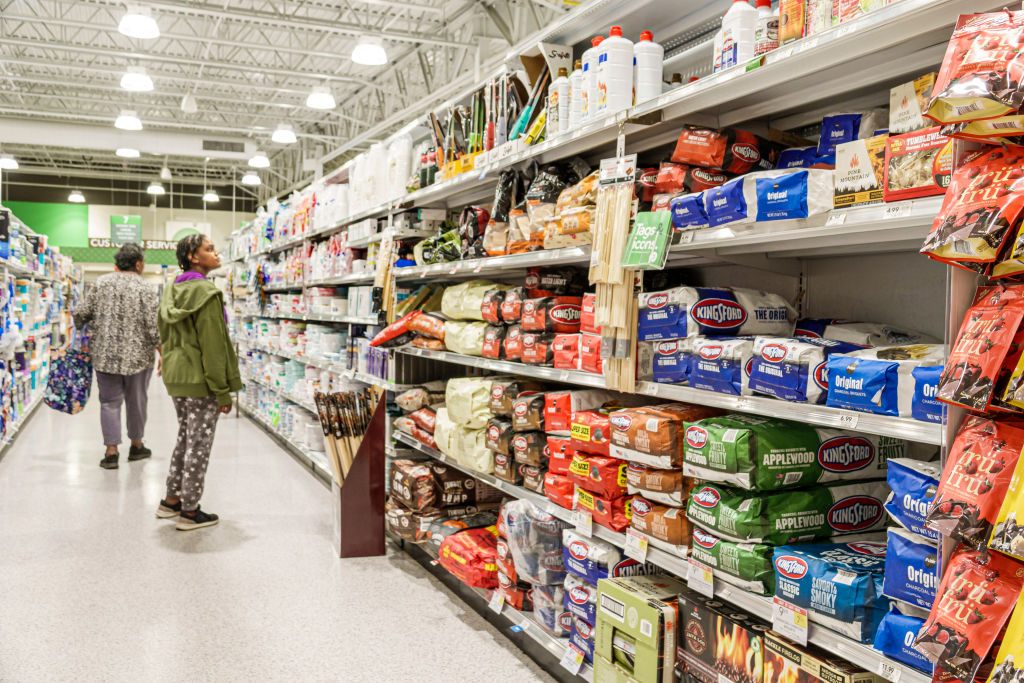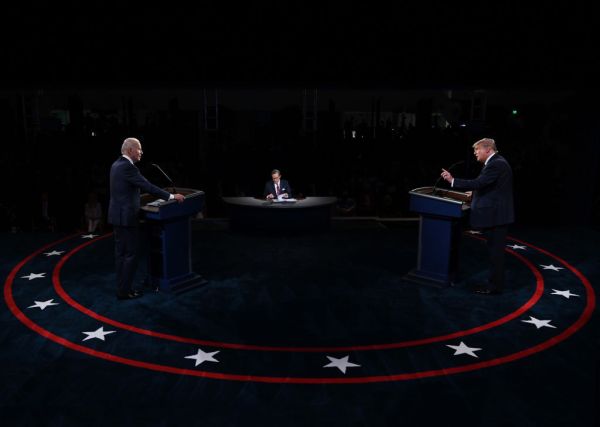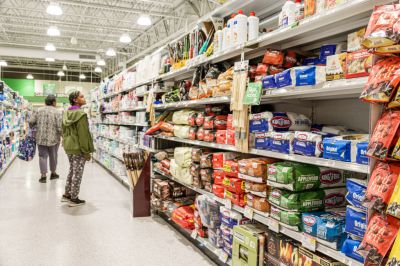Inflation is on Georgia voters’ minds.
Sandra Bacharach, who lives in the Atlanta suburb of Alpharetta, remembers her daughter coming home recently and throwing two grocery items on the counter: a bowl of sliced pineapple and a carton of blackberries. “This was $18!” she told her mom.
Bacharach laughed. “Yep.”
Ted Hansen, another Alpharetta resident, sees it, too. He notices his grocery bill steadily creeping up. “I’ve got a kid I’m trying to get through college,” he told The Dispatch. “Things are tight. It’s definitely impacted us.”
Georgians are acutely aware that their dollar isn’t worth what it once was, and with the presidential election less than five months away, polls indicate suburban residents in this swing state are planning to vote with their wallets.
In a Quinnipiac poll conducted earlier this month, nearly 1 in 3 Georgia voters say that the economy is the most important issue driving their choice of presidential candidate — and many have a clear preference. Fifty-eight percent of Georgia voters say that former President Donald Trump would handle the economy better than President Joe Biden.
In the same poll, 33 percent of voters say that food prices are their top economic concern, followed by the prices of housing, consumer goods, and energy.
Georgia voters’ focus on the economy illustrates one of the key challenges for Biden’s efforts to hold on to the state he won in 2020. Eking out a victory by fewer than 12,000 votes, Biden became the first Democrat to win Georgia since Bill Clinton in 1992, and the first Democrat not from the South to win a Southern state since John F. Kennedy in 1960. The narrow victory margin prompted a swirl of conspiracy theories about voting irregularities and made the state a focus of Trump’s efforts to overturn the results, leading to still-pending criminal charges against him. But it also turned Georgia into a key 2024 battleground.
Both parties are vying to win over voters in Atlanta’s sprawling suburbs, the very place where kitchen-table issues such as grocery prices may make the difference.
“I mean, the grocery bills are so much higher. I've got one son in college, and one going to college next year. I think our bills are double what they used to be,” Kimberly Morrison told The Dispatch. She lives in Fulton County, which Biden won by nearly 250,000 votes in 2020. She noted how expensive groceries, gas, and college tuition are. “In general, our cost of living has skyrocketed.”
Because of both inflation and the general state of the country, Morrison has made up her mind. “Neither of them should be president, but it’s where we’re at,” she said. “I’ll vote Republican.” She voted for Trump in 2016 and 2020, as well.
In exurban Forsyth County, Trump won by nearly 50 points in 2016 but his margin dropped by 14 points in 2020. Resident Isaac Wheaton is still undecided about his choice for president and weighing how that choice could affect his cost of living. “They say that [inflation] has cooled down a little bit, but it’s still not enough yet to make a huge difference in a lot of people’s budgets,” he said.
But looking beyond the pinch many people feel during their weekly grocery shopping trips, many of the underlying numbers in the state’s economy are positive. Zachary Peskowitz, an associate professor of political science at Emory University, emphasizes that Georgia’s unemployment rate is lower than the national average—3.2 percent in Georgia compared to 4 percent nationally—and there has been significant foreign direct investment in the state, including Hyundai building its first electric car plant in southeast Georgia.
But voters’ perceptions of the overall economy can be different from reality. Peskowitz said that inflation “staying stubbornly persistent above 3 percent” has overshadowed many of the otherwise positive economic developments in voters’ minds.
“We’re going to have an opportunity to see what’s more important: people’s self-reported perceptions or more objective economic indicators,” Peskowitz said.
And these self-reported perceptions are strong. Seventy percent of Georgia voters responding to the Quinnipiac poll see the economy negatively—a foreboding sign for a Biden campaign that is now trailing Trump by 5 points in the polls.
Peskowitz thinks the situation looks bleak for Democrats. “I think Trump is very likely to win Georgia at this point, unless inflation drops very quickly. And it really hasn't,” he said. “It’s stabilized in this 3 percent to 4 percent range. I think that would help Biden, but there's not much evidence of that happening, and I think the Biden campaign should be concerned that it hasn't.”
Democrats are hoping voters can see past grocery prices that have been volatile since the coronavirus pandemic began in 2020 and focus on loftier issues. When asked what his message is to Georgians who previously voted for Biden and are now considering voting for Trump because of inflation, Sen. Jon Ossoff of Georgia was emphatic.
“There could not be a clearer contrast on competence and integrity than in this presidential election. The consequences of electing someone with so clear and unmistakable lack of character as Donald Trump would be immensely negative for our Republic, for our Constitution, and for the rule of law,” he told The Dispatch.
Some Georgians feel the same.
For Hansen, who historically has voted Republican but has been moving leftward, inflation isn’t enough to push him toward the GOP’s presumptive nominee. “I've always said I'm not going to vote for Trump,” Hansen said. “He’s a felon.”
“I would probably still vote Republican on every other issue. If it wasn't for [Trump], I probably would have continued to vote Republican,” he said.
Bacharach, who voted for Trump in 2016 and 2020, is the kind of suburban, college-educated female voter the Trump campaign needs to turn out to swing Georgia back to the Republican column in November. Trump led white, college-educated voters by only 12 points among men and 10 points among women in 2020 when he lost to Biden.
“I think he'll help the economy tremendously. I think he'll get inflation down,” she said. “The economy was great because he made it friendly for businesses.” Inflation isn’t the only factor in her vote, but it still looms large.
“I mean, everybody’s noticing it, right?”







Please note that we at The Dispatch hold ourselves, our work, and our commenters to a higher standard than other places on the internet. We welcome comments that foster genuine debate or discussion—including comments critical of us or our work—but responses that include ad hominem attacks on fellow Dispatch members or are intended to stoke fear and anger may be moderated.
With your membership, you only have the ability to comment on The Morning Dispatch articles. Consider upgrading to join the conversation everywhere.